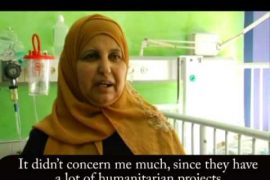1) The Long War Journal provides ‘Profiles of 28 Iran-backed terrorist groups and branches in the West Bank’.
“Iran-backed terrorist groups, including Islamic Jihad, al-Aqsa Martyrs’ Brigades, and Hamas, have proliferated in number and strengthened their presence in the West Bank in recent years. The groups have established battalions (Katibat) in Nablus, Jenin, Tulkarm, and beyond. Iranian arms and funding have primarily fueled this violent escalation.
FDD’s Long War Journal has identified 26 West Bank branches belonging to established terrorist organizations and two independent armed groups, mapped and detailed on this interactive visual.”
2) At the Times of Israel, Dalia Ziada explains why Egypt rejects Israeli control over the Philadelphi corridor.
“Ziada saw three reasons for Egypt’s refusal to cooperate with Israel over the controversial corridor: the opposition of Sinai Bedouin tribes, the embarrassment of the Egyptian leadership over its failure to secure its border with Gaza, and the potential backlash from Egyptian society and the Arab world at large.”
3) MEMRI reports on the recent presidential election in Algeria.
“On September 8, 2024, Abdelmadjid Tebboune was elected for a second mandate as Algeria’s president with 94.7 percent of the vote, following an election boycotted by a part of the opposition. […]
In March 2024, Tebboune met with Iran’s then president Ebrahim Raisi in Algiers. It was the first time in 14 years that an Iranian head of state visited Algiers. The two leaders signed five cooperation agreements, the most important ones on energy. During the press conference, Tebboune underlined “the convergence of views” between Algeria and Iran. He further applauded “the positions of the Iranian leadership, backing the Palestinian people and rejecting the Zionist aggression amid the shameful silence of some countries.”“
4) At the JCFA, Irina Tsukerman explains ‘What’s Behind South Africa’s Anti-Israel Lawfare Campaign?’.
“At the heart of the Muslim Brotherhood’s and Hamas’s operational network in South Africa is Mandla Mandela, a grandson of Nelson Mandela who was once a member of the South African parliament. Mandla Mandela now focuses on NGO activism, devoting his efforts exclusively to anti-Israel and pro-Hamas efforts, similar to former foreign minister Naledi Pandor.”
5) At the JISS, Dr Eran Lerman looks at ‘Four Options in Lebanon’.
“Why did Hezbollah Secretary General Hassan Nasrallah order his organization to launch a campaign of limited yet painful attacks on Israel the day after Hamas’ assault in southern Israel? Officially, he claimed that by opening another front – alongside the Houthis from Yemen, and other Iranian proxies in the region – he would alleviate IDF pressure on Gaza. But this is not what happened: once the IDF fully mobilized its reserves, it had (and continues to have) the necessary resources to fight off Hezbollah’s challenge while systematically diminishing Hamas and Palestinian Islamic Jihad’s (PIJ) capabilities in Gaza. […]
Nasrallah’s directives, in other words, have little to do with the situation in Gaza, which Hezbollah has been unable to change. They reflect the need for Hezbollah to justify to itself and to the Lebanese its ongoing stranglehold on the state – presumably, to enable it to carry out its “Jihadi” mission. Its actions are also the inevitable derivative of Iran’s much broader strategy of conducting a proxy war of attrition aimed at breaking the resilience of Israeli society and ultimately creating the conditions for the elimination of the “fake Zionist regime” (as outlined in Supreme leader Ali Khamenei ‘s “roadmap” tweet of November 2014).”





